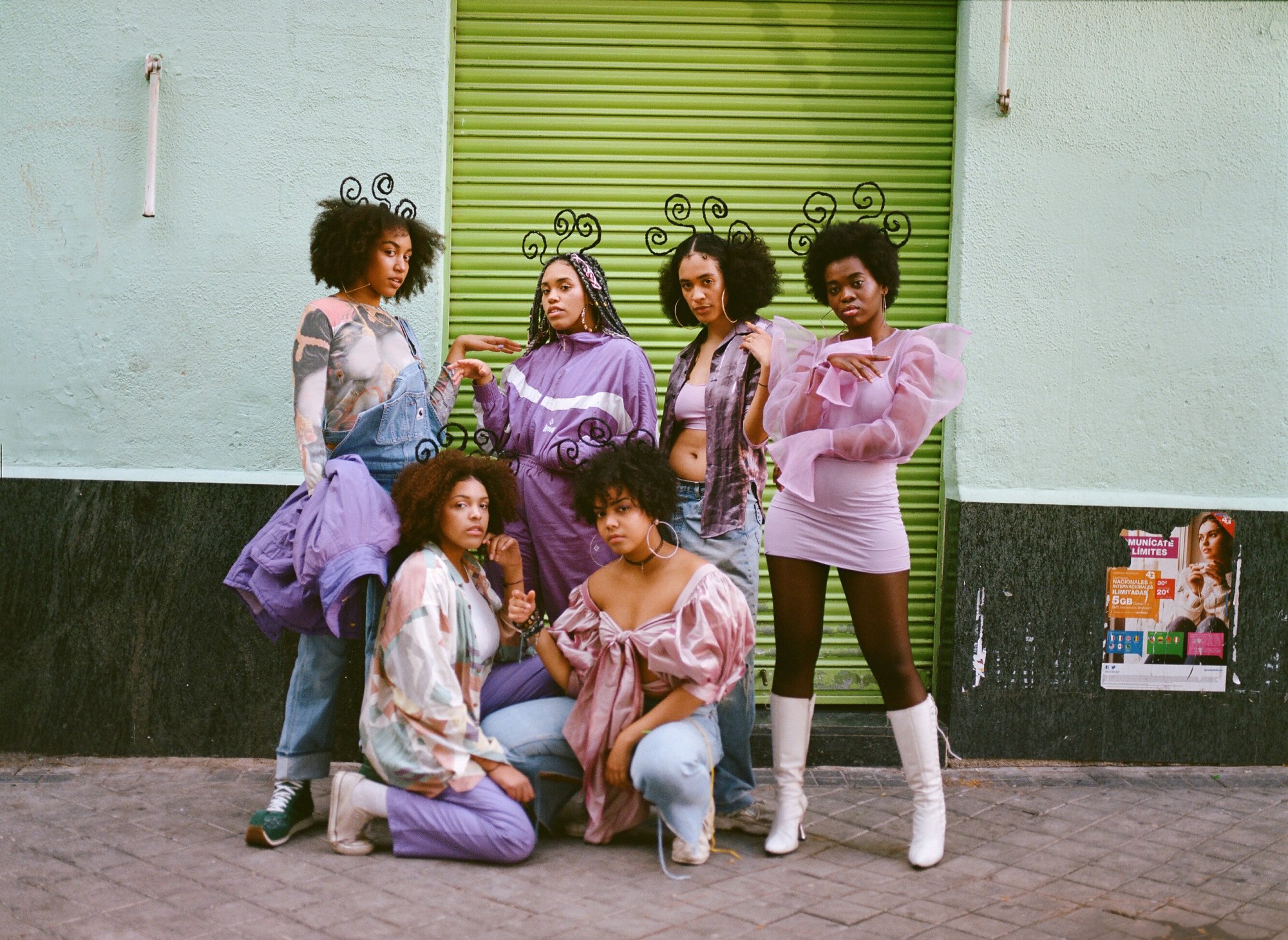A version of this article originally appeared on i-D Spain.
As a heterosexual white woman, it’s difficult for me to understand what it must be like to not see yourself reflected in the world around you. I’ve always been able to identify with my dolls or the protagonist of whatever North American blockbuster is the film of the moment. Or what it’s like to be discriminated against — whether actively and passively — for having dark skin in a country that’s supposedly white like Spain is. Nonetheless, as a heterosexual white woman, what I can do is to learn and recognize what my ancestors did (and what many of them continue to do) to people of African descent in Spain.
White Spaniards are moved by movies like The Color Purple or Django Unchained, which deal with the suffering of African-American slaves, but many of us ignore our own slave-holding past. We know little about María Cristina de Borbón trade deals or the way in which the industrial revolution, which occurred mainly in Catalonia and the Basque Region in the second half of the 19th century, was financed.
That’s why initiatives like those of the EFAE collective are necessary. Sere, Sofía, Nao, Marina, Julia, Benia, and Oumou are artists, students, Spaniards, and Black, all united by a common cause: to empower Afro-descended women in our Spain. i-D talked with them about the importance of sharing, learning, and reaffirming themselves in a world that has marginalized them for centuries. They talked, and we listened.
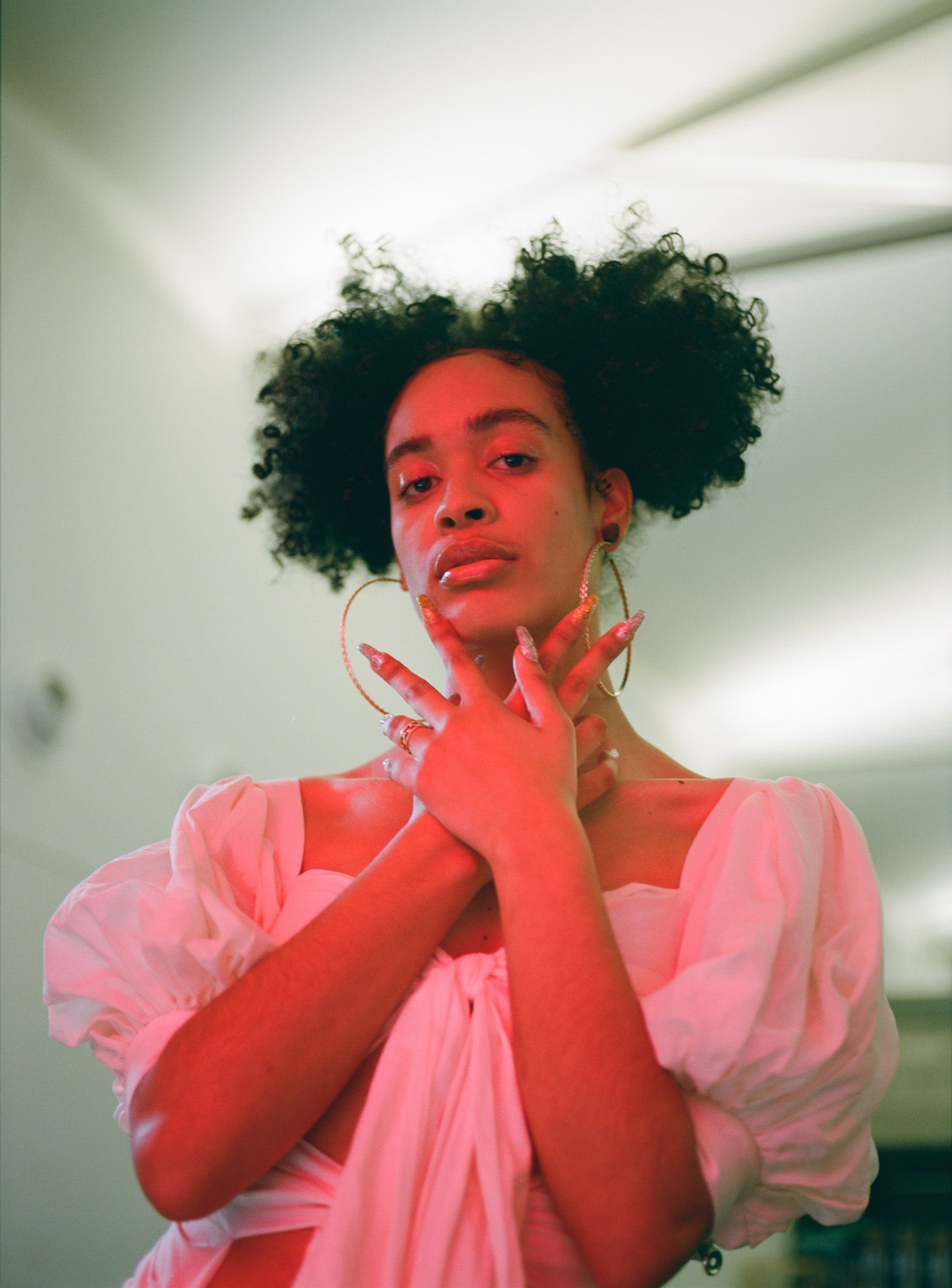
How and when did you decide to get together and create the collective?
EFAE was born from the creation of a Whatsapp group chat that was composed of a group of Black sisters who lived in different areas of Spain. In Summer 2016, [someone] suggested that those of us who live in Madrid meet up and get to know one another. Following that get-together, we realized the need to come together and organize ourselves for purposes of activism. We thought that through the creation of an Afro-feminist collective, we could share, reflect, fight, and, above all, empower ourselves from a place of collective healing and vindication.
Time has passed since that summer when a few girls decided to get together. Right now, there are more than 60 members of EFAE who have diverse experiences, ages, and backgrounds.
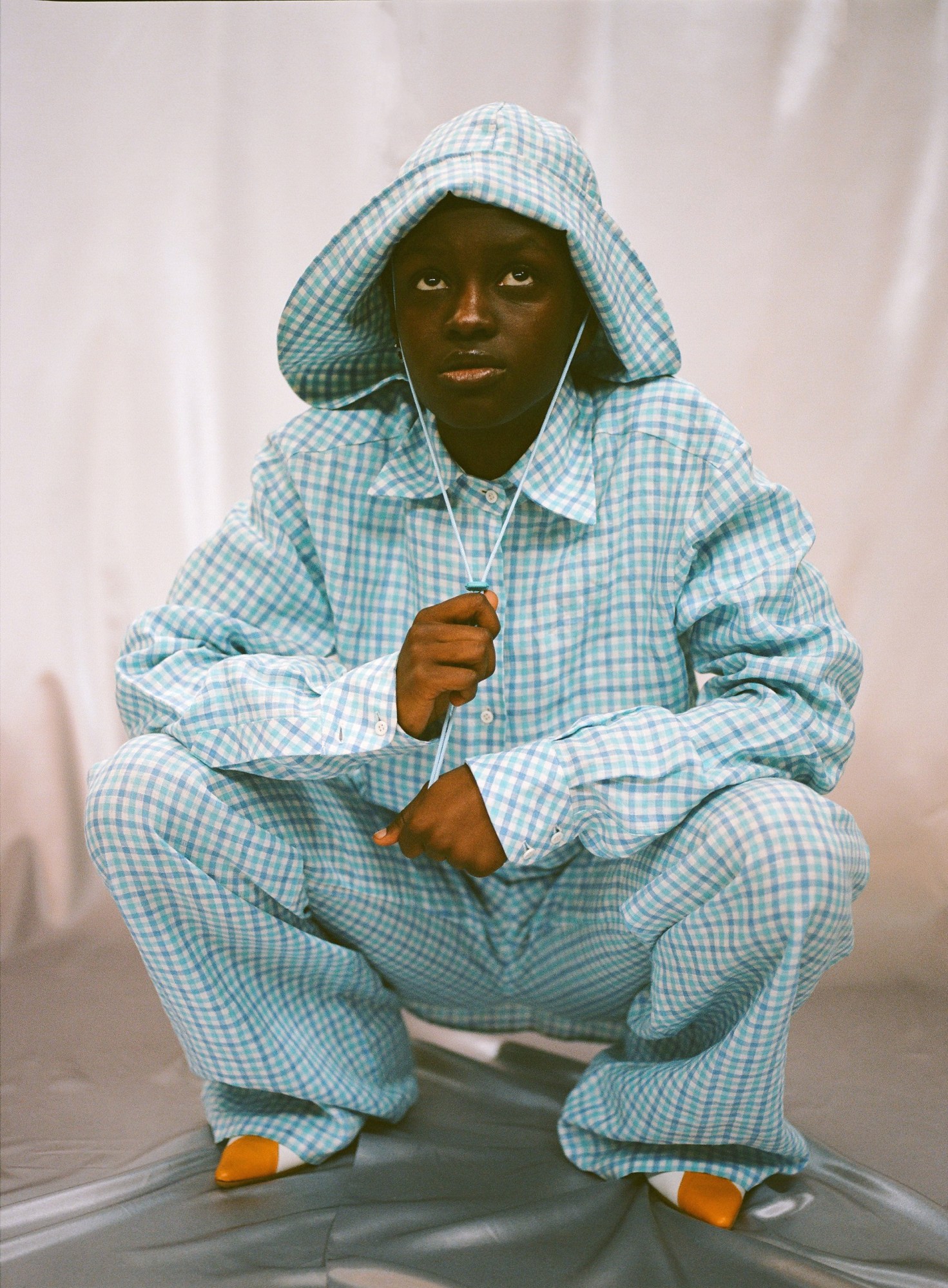
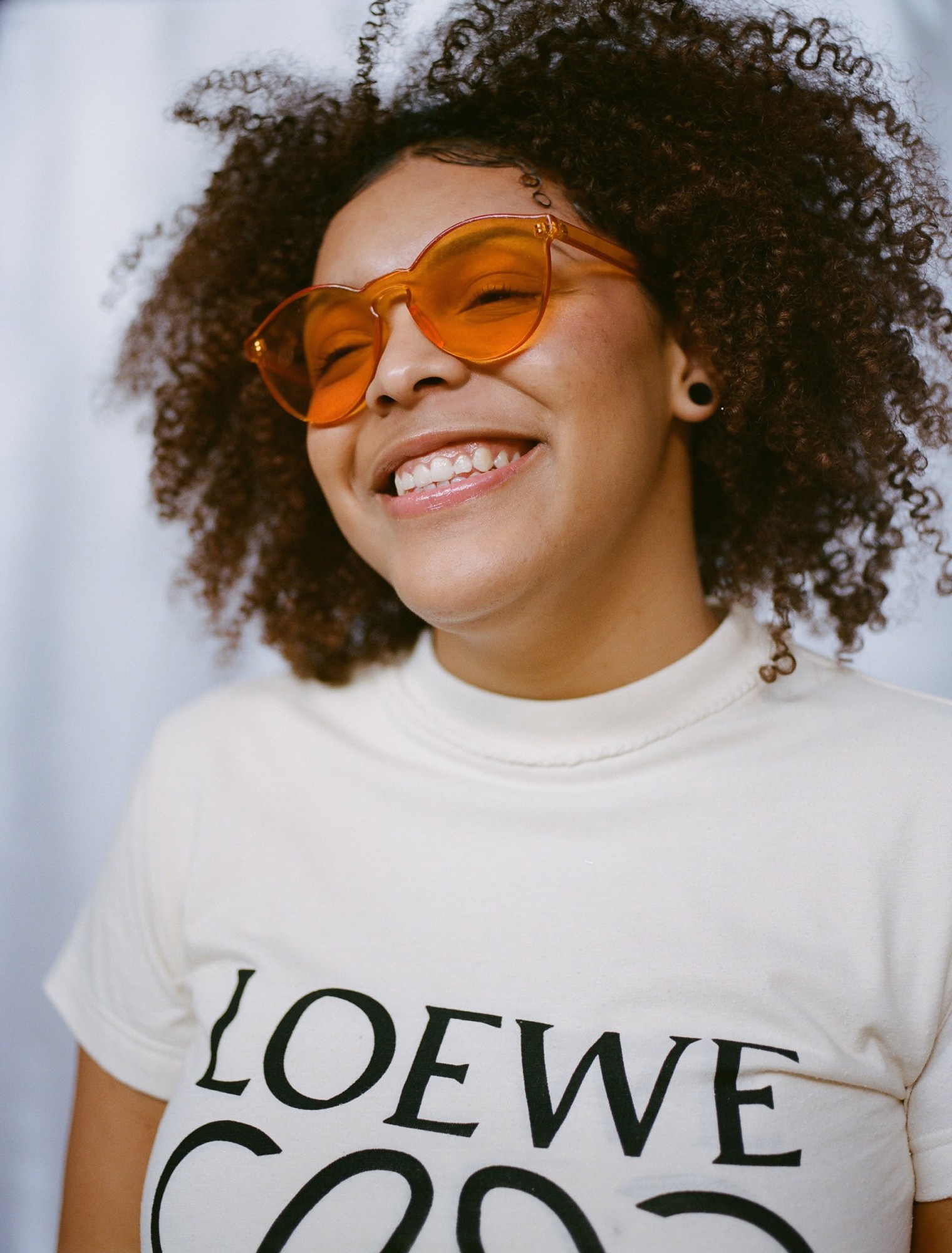
Do you have a reference point that has influenced or inspired you?
We all agree that the most influential points of reference in our process of empowerment and struggle are reference points that aren’t far away. We understand that there are many different ways to embody a struggle, and that it’s our own sisters and brothers who are giving voice and life to that struggle from various places, feelings, and means of action. There are many Afro-descended sisters and sisters of color who, from our point of view, are reviving the ways in which we perceive ourselves: from activism to academia to fashion, social media platforms, journalism, etc.
On the other hand, memory is a worthwhile form of vindication and struggle. Because of that, we don’t forget grand points of reference like Sojourner Truth, Audre Lorde, or Marsha P. Johnson. All of them sustain us and we know that they’re not dead if we continue embodying their struggle.
Other names that are alive and active right now, and whose work nourishes us, are Angela Davis, bell hooks, Viola Davis… Also, and as we noted earlier, our first points of reference are the ones that are closest to us, so we can’t not mention the work of [journalist] Lucia Mbomio, Desirée Bela [founder of the blog Negra Flor], Astrid Jones [actor and singer], Yos Piña [a de-coloniziation artist and activist).
What are your goals as a collective?
In EFAE, the political goal is born out of and occurs primarily through the form of self-care. We take care of our own needs, and the dynamic of the collective has evolved with that in mind. We intend to be a group of empowerment. We believe that, in our case, empowerment is a process of collective healing.
Typically, we hold member meetings in which there’s an organized agenda, which might involve commenting about a text, watching videos together, or teaching each other different ways of taking care of our hair. Everything we do is from a pleasant, affective kind of position. We don’t think that all activism has to be academic in nature and that all activities have to revolve around that; rather, we also know that enjoying time together is a way of vindicating our very existence.
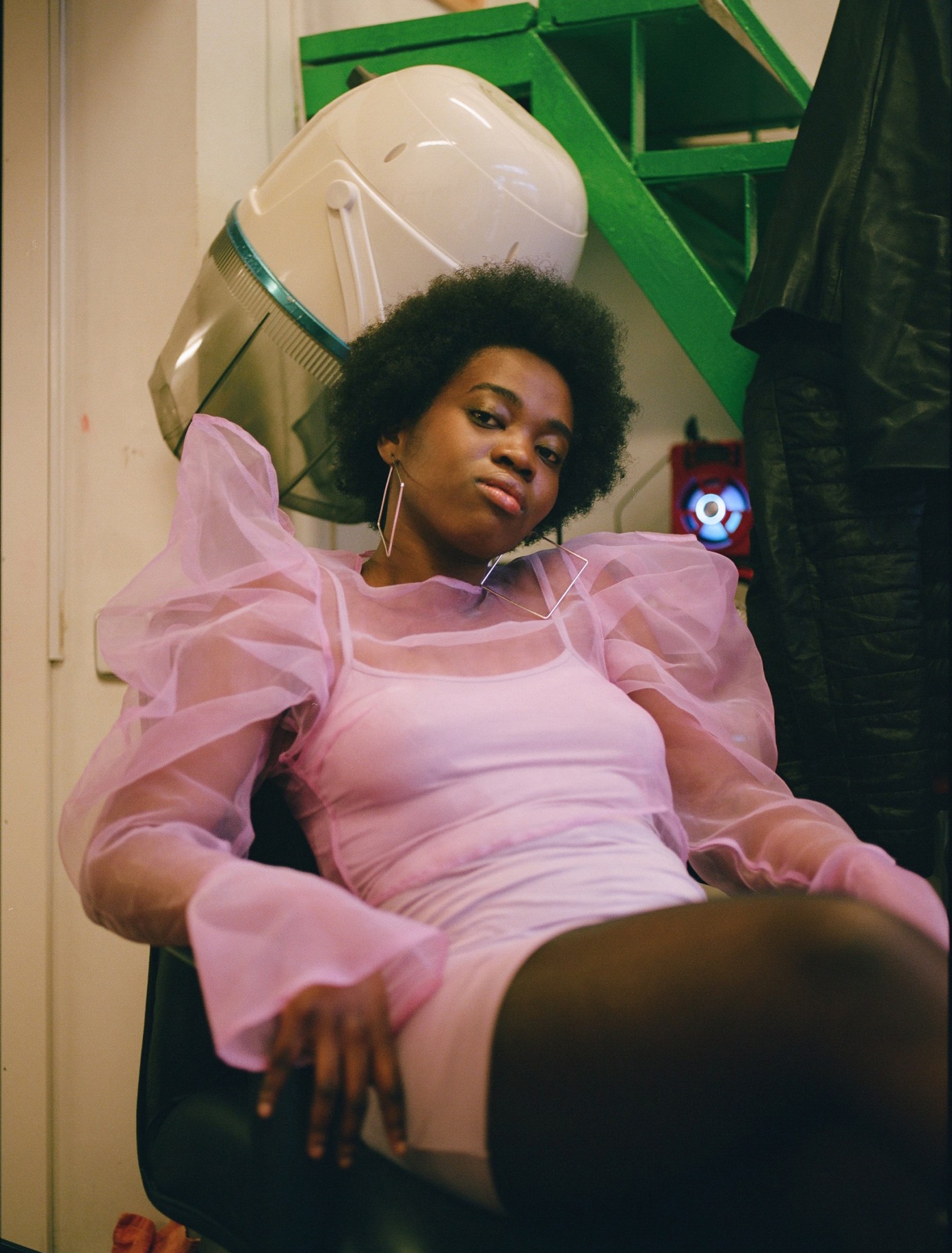
Many people think that slavery and colonialism are things of the past, but there’s nothing further from reality. What are the new and old challenges that our generation is facing?
Colonialism and its many forms of domination have spent 500 years learning how to renew and re-exert themselves. It’s a negating, reductionist exercise to talk about colonialism as something of the past, when the system of migratory control is underpinned by a racist, colonialist logic that allows many of our brothers and sisters to be held in CIES [migratory control centers in Spain] solely for coming to a continent that was built with the blood of their (and our) ancestors, and from the exploitation of our lands.
The colonial influence is also present in the way in which the world perceives people of color, including the way in which we perceive ourselves. There’s a mode of understanding in the where racist and dehumanizing attitudes and practices have been normalized.
The challenges — if they can be called that — are that [people] in our generation have to confront the inheritance and the ravages of a system that has marked nearly every way of understanding the world, and the hierarchies and power dynamics [it contains]. It’s precisely because this manner of thinking is second nature, that racism and its ways of operating aren’t always apparent. Our job is to recognize and grapple with that legacy.
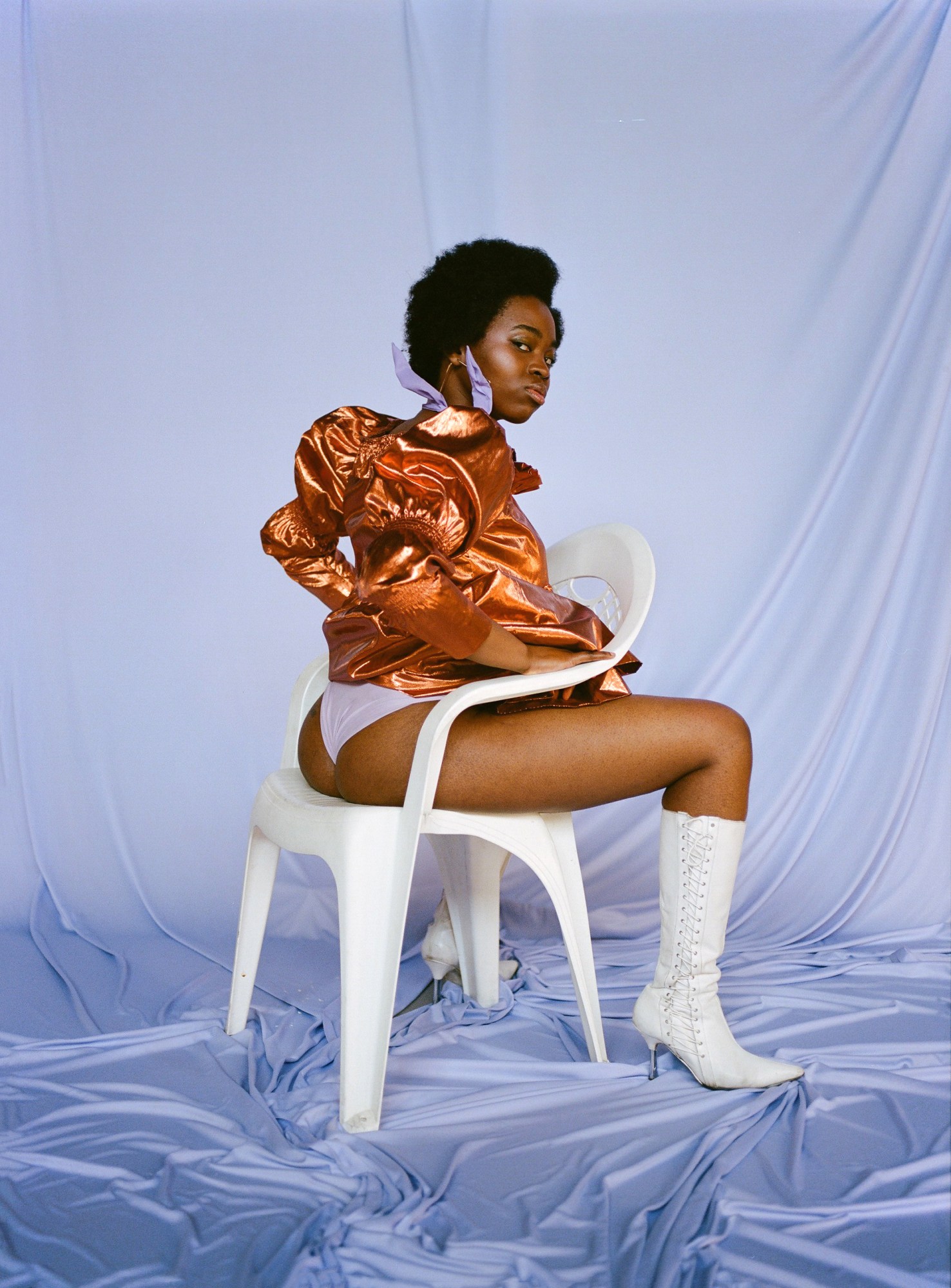
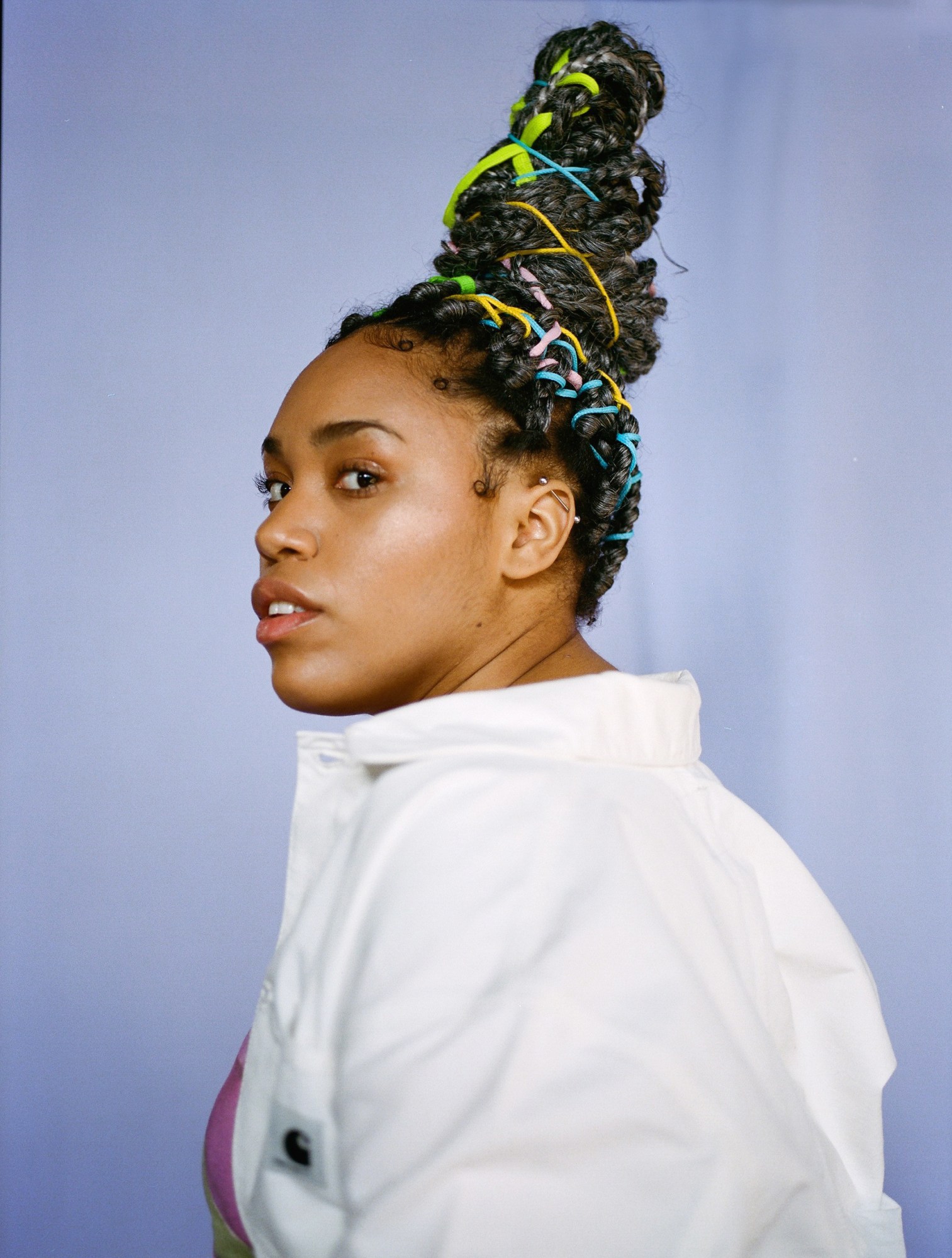
Last year, Rihanna launched a cosmetics line into the world with great success. One of the most applauded aspects of her beauty line has been the diversity of tones for different shades of skin. How do you live with the stigma that has always accompanied Black beauty in a country like Spain?
It’s become habitual for people to see beauty as something frivolous, or as something that doesn’t have enough weight to be seen as a means of vindicating oneself. But in our case, we embrace our beauty and see it as a political means of vindicating our existence.
Trying to attack the traits that reveal our Blackness and the traits that challenge cishet and white notions of beauty — and which are perceived as obscene, comical, or ugly — is something that has become habitual for Black people and people of color. Most of us have experienced the desire for smooth, silky hair, finer features, etc.
We think that Rihanna’s Fenty collection has been revolutionary with respect to representation. Colorism has always been very prominent in cosmetics, and in the best case scenario, you could find makeup for mixed people, but it has always been very difficult for dark-skinned sisters to find their color. We believe that representation plays a very important part — from an early age, from the moment that we begin to imagine ourselves. If people of color see ourselves represented from the time that we are girls and onward, we understand something as simple and worthy as the fact that we exist.
What other stigmas do you have to confront on a daily basis?
The stigmas that are generated by racism are so diverse and so pervasive — depending upon the bodies they pass through — that it’s complicated and painful to answer that question with precision. We are a collective of Black women, but not everything that characterizes us is homogenous, and for that reason, the stigmas that we encounter aren’t always the same.
Exoticization, the ways in which misogyny and racism act together, and the condescension and paternalism with which we are treated, are some of the many stigmas that we have to fight against on a daily basis.
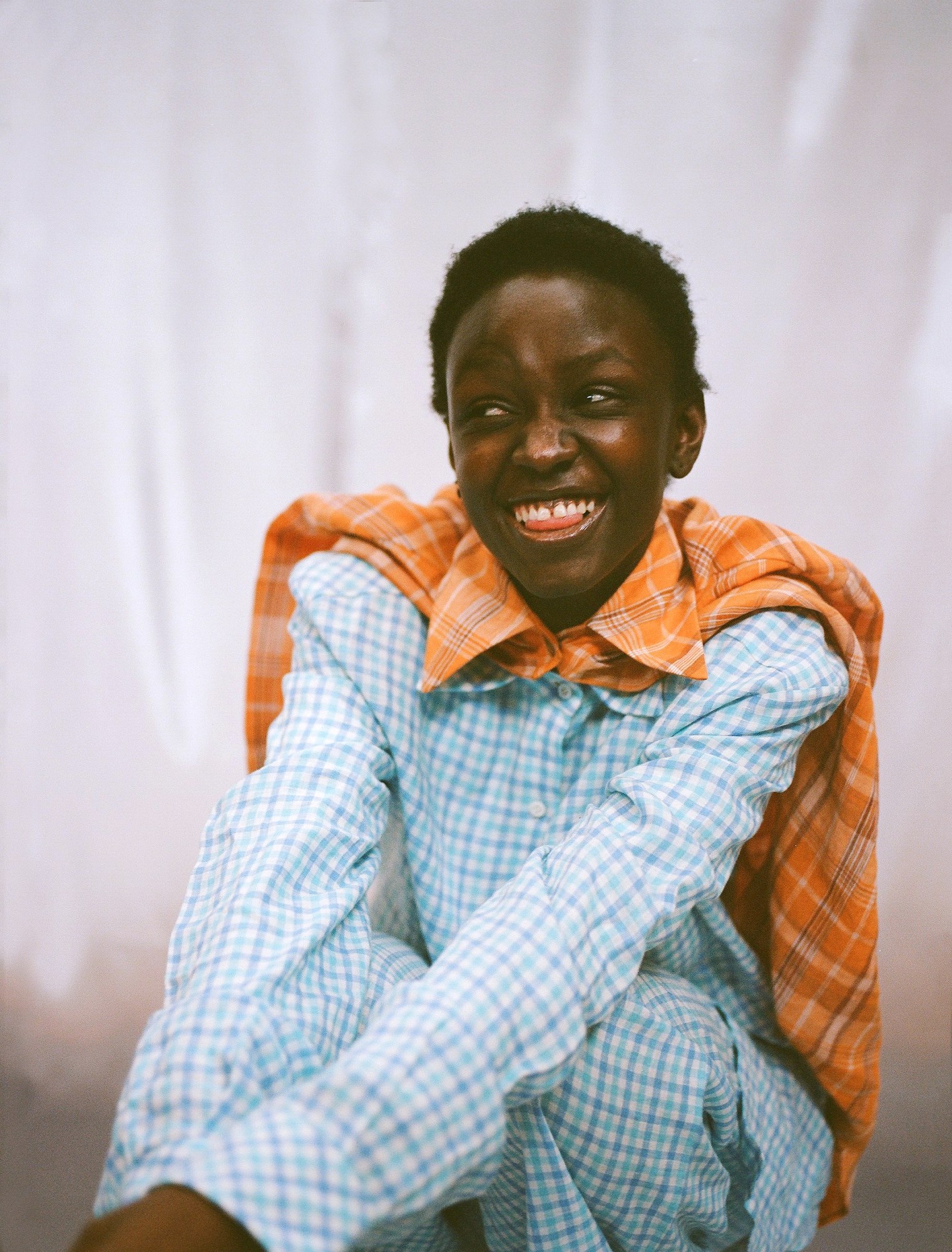
With respect to questions of identity and sexual orientation, I imagine that you confront double rejection and lack of understanding. How do you deal with this type of conflict within your own families and cultures of origin?
It’s important for us to reflect upon how the construction of gender and sexuality diversity have been drastically influenced by the colonial project. The first sexual dissidents appeared in the memoirs of the colonists as sodomites that had to be punished. They also talked about how there were “men” dressed as women. The imposition of religion by the colonists reinforced the man-woman binary and heterosexuality as the only valid form of sexuality.
With that as a point of departure, within the community we’re aware that there are some things regarding this issue that we have to solve, but we don’t believe that in this medium we should put the focus on the double rejection that we experience — on the part of white society and from our own community — for having diverse sexual orientations. Rather, we should focus on the double rejection that we experience because of white supremacy for being people of color and at the same time, people who aren’t heterosexual.

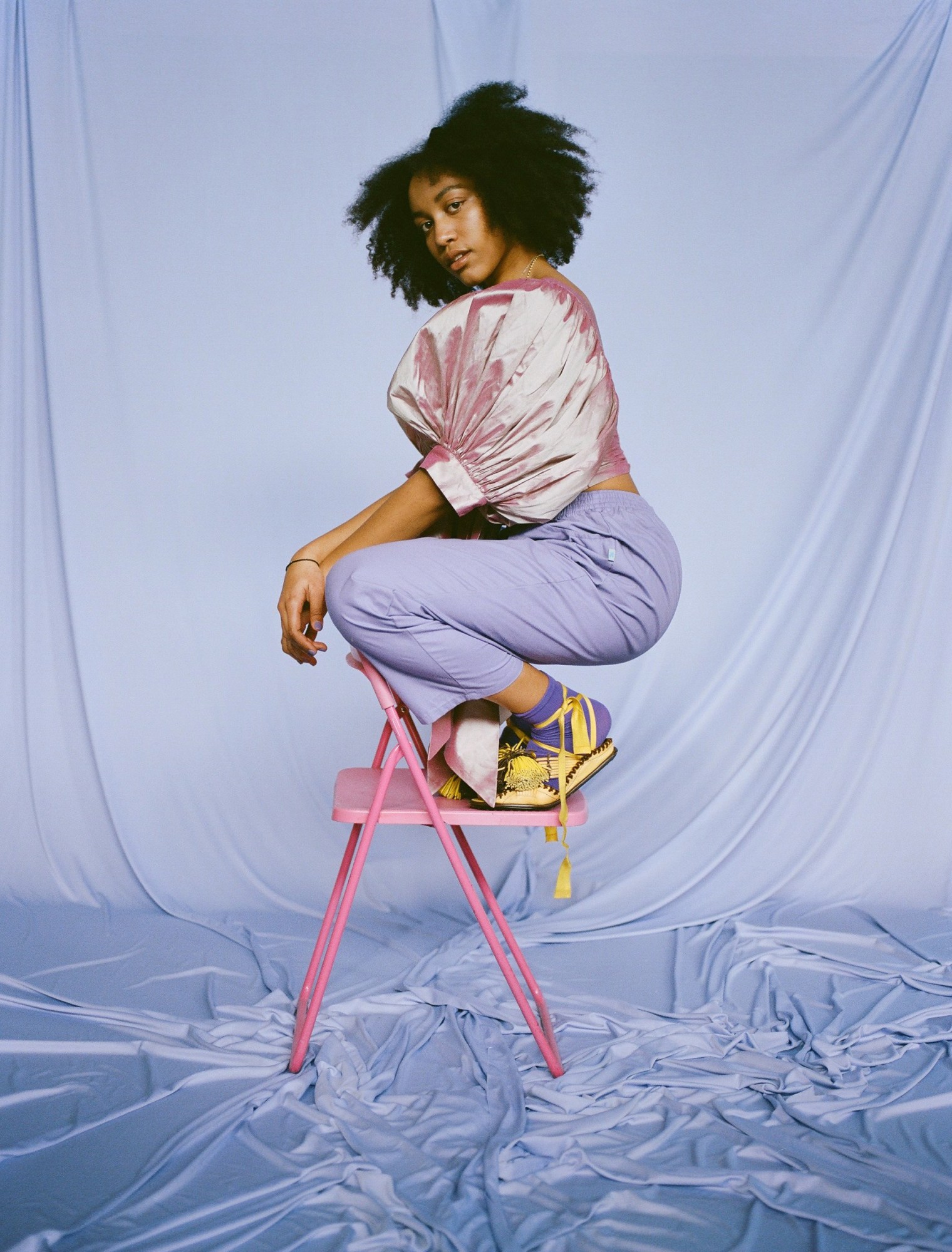
As a result of centuries of slavery, Black women have always been hyper-sexualized. What remains of that today? How do you deal with your own sexuality?
Racism and misogyny have worked together to create an [entirely imagined fantasy] of the Black woman’s body, and that falls directly upon us. It’s dehumanizing and fetishizing at the same time. The hyper-sexualization of our bodies has roots that are very painful and that were planted through the power of white, cishet supremacy exerted upon us, which carries rejection and denial along with it.
In the same way that being perceived in that way is painful, it’s also painful to deny our own sexuality. That’s why, from the point of the view of the collective, we call out, denounce, and fight against all the different types of codified stereotypes which have been generated around our bodies. We embrace our sexuality and all that is worthy in it.
What are EFAE’s future plans?
Our future plans aren’t very different from what we’ve been doing so far: Empowering Afro-affectivity, representation, and taking care of ourselves.
One can articulate the way we do all of this beyond the meetings we’ve held to date. We don’t reject the possibilities of workshops, talks, and other types of get-togethers. But as we’ve said, right now the priority is to discover, heal, and fight as a collective, and to learn together. For the moment, EFAE has distanced itself from pedagogical labor and has prioritized getting to know ourselves before teaching others.
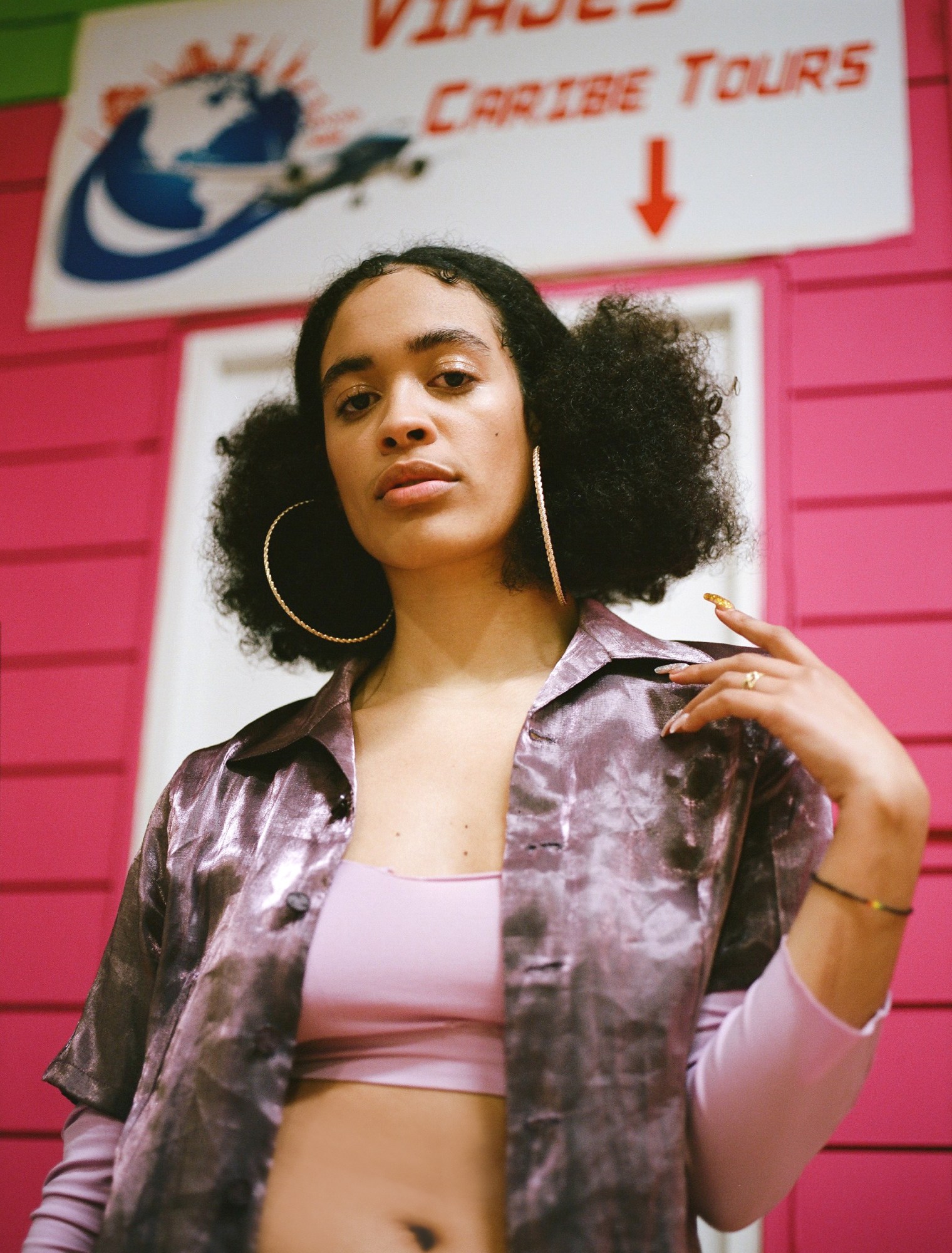
Credits
Text Mirena Ossorno
Translation Julie Schwietert Collazo
Photography Olga de la Iglesia
Styling Stephania Yepes
Makeup and hair Lulú Pérez
Photography assistace Daniel de Jorge
Styling assistance Judith Adataberna
Crown design Kley Kafe
Production Julia Álvarez
Special thanks to Matadero Madrid
